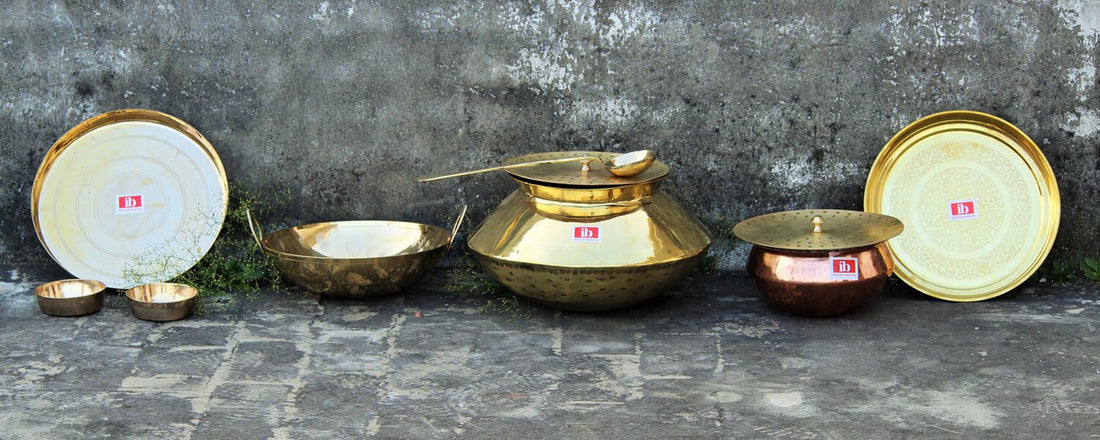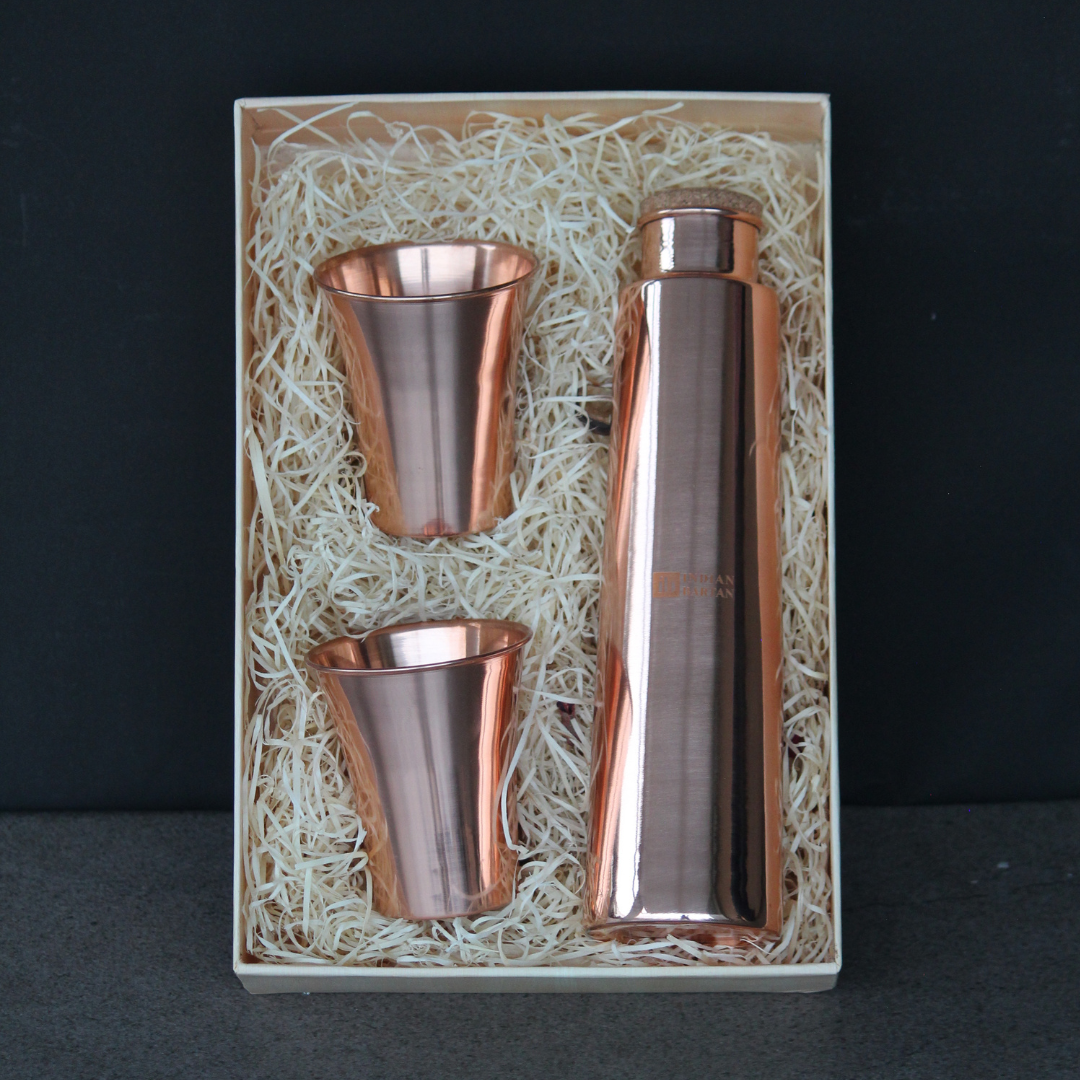
How to Use Brass Utensils in the Kitchen?
Share
Brass is a utensil that is highly recommended for your kitchen. It is one of those alloys that were used in each Indian kitchen 50 to 60 years back.
Sadly, with the growth of Steel and Aluminum vessels, brass utensils' existence has vanished. However, it must be taken into consideration that it is one of the healthiest alloys available since the medieval age.
The human body needs minerals, metals, micro-nutrients, or nutrients for well-being. However, the body does not create these from within, so, they need to be taken from outside. Hence, using brass is a must!
What is Brass?
The other name of brass is Pital- it is an alloy that combines Zinc and Copper. It includes 60 to 70% of Copper and 30 to 40% of Zinc. While cooking or eating in the copper cookware, the Zinc and Copper benefits will be attained. The metal is extremely popular because of its resistance to corrosion, durability, strength, and yes, elegance and beauty;
Features of Brass Utensils
- It retains nearly 93% of the nutritional value of the cooked food.
- Brass alloys are used only when it has a Tin coating.
- It is best to avoid putting sour or acidic items (such as curd, lemon, tamarind) in a brass container(particularly if the container is not tinned).
- If it takes a long time, it is best to simmer slowly at medium temperature.
Health Benefits of Brass
- Brass metals benefits to pacify aggression and burning sensation
- Promotes digestion
- Strengthens immunity
- Improves Hemoglobin
- Changes the skin texture
Is Brass a good metal inside-outside?
For many years, brass is marked as an antibacterial metal. Though, it is a half-truth!
Yes, it is antibacterial, however, the researches reveal that it loses antibacterial properties when touched with a hand. The oil and sweat from the skin block the change of charged particles and produce a corrosive layer to kill the bacteria.
For functioning as a complete antibacterial agent, the brass should be cleaned constantly, properly, and thoroughly on a daily basis. Now, when we have such a claim, we can focus on the actual state of brass.
Recently, Ayurvedic specifications have been challenged due to the use of metals like mercury and lead. Rasashastra describes every form of metal, externally and internally, and how to counter unfavorable impacts that occur. Charaka himself advocates caution while using metals for various administration types.
It was known for a long time that brass can regulate pitta and restore the stability of the three doshas. Ayurvedic formulas and texts include the use of brass cooker, brass (Pittala) in the Krimi treatment (guinea nematode), Pandu (a pitta overt anemia), leprosy, etc.
As a matter of fact, Charaka Samhita talked about the use of brass in manufacturing different processing tools. Ayurvedic recipes mainly use brass in the form of brass or ashes.
What to pay attention to when using brass utensils?
Known as a versatile alloy, Brass can be formed into vessels for daily usage. As it looks like a difficult procedure, it is somewhat the opposite.
Brass utensils used for cooking are usually lined with Eiyam (tin). The coating is meant to define the culinary purpose of the metal. The brass cookware with the tin lining is used with foods with acidic properties. The alloys without lining are used for imparting the different tastes to the beverages and for steaming, storing, and of course, assuring cooking in less time.
Let's find out every possibility in a comprehensive manner. You can use untinned brass utensils to do the following:
- Use the vessels to serve hot tea in the morning. The brass coffee filter and davaras give a great taste to filtered coffee. The heat of the liquid gives this metal a different taste and intensifies the aroma of hot drinks.
- Brass Leta and kettles can be used to save water and as beverages. Drinking water with brass jugs or glass can increase physical strength, and it will immediately increase on time. It also manages pitta in the body and restores the balance of the doshas.
- Uncoated brass containers can quickly stir vegetables, particularly spoons, ladles, and cooking utensils.
- Brass spoons are great for serving because they give food a different taste.
- These containers can also be used for cooking Appams because they do not need high temperatures and can be cooked in a short time.
- Brass cookware is very suitable for steaming idlis, fish, or steam food because it can regulate and equally disseminate heat.
- Brass unusually reacts when it is formed into a mortar and sieve or pestle.
Concluding Remarks
Better health is a right that we all deserve. Life is so long, why not cook with better utensils and eat healthily. The metal vessels have all the necessary ways to maintain bodily functions. This is just to revitalize our culture, it has brought us a lot.
After all, our descendants are coming soon. Let them witness the charm that our grandmother and great-grandmother are proud of. A small change in your kitchen cookware today will definitely bring you a healthier and brighter tomorrow.
You can check the brass utensils online and get the essentials for your kitech of high quality at a competitive rate from Indian Bartan. Contact us for further information!

